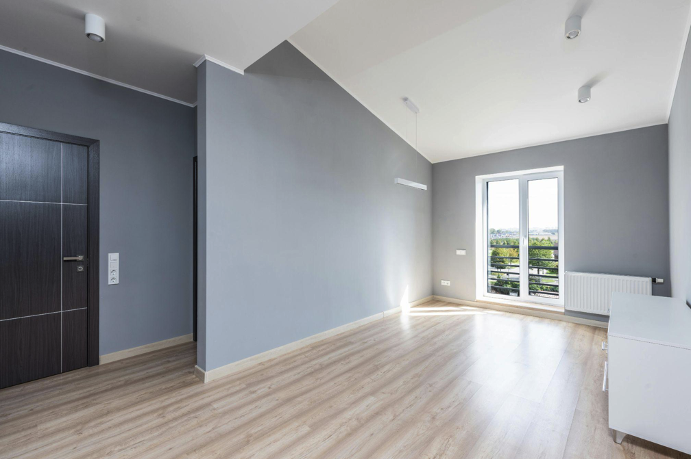
Managing a rental property may seem like an easy way to earn a steady income, but there’s more to it than meets the eye. While collecting rent is rewarding, many landlords are surprised by the unexpected costs that come with maintaining a rental. From tenant turnover to compliance fees, these hidden expenses can quickly add up and reduce your profits. If you’re not prepared, managing a property can become overwhelming.
In this article, we’ll uncover five common hidden costs landlords face and share tips on how to handle them effectively. Understanding these challenges will help you make more informed decisions and stay ahead in the property rental game.
One of the most overlooked costs in property management is tenant turnover. Every time a tenant moves out, landlords often face a combination of cleaning fees, repair costs, and marketing expenses. Even if the previous tenant took care of the property, small fixes like patching walls or replacing worn-out carpets are typically necessary. On top of that, you may lose rent during the time it takes to find a new tenant, leading to further financial strain.
This is why a property rental company can be an invaluable partner for landlords. Companies like Nomadic Real Estate handle move-out logistics, including coordinating repairs and securing competitive quotes from trusted vendors. Their expertise ensures that the property is ready for new tenants as quickly as possible, minimizing downtime and the associated costs. These companies can also assist with marketing the property, so you don’t have to worry about extended vacancies.
By streamlining the turnover process, a professional property manager can save landlords both time and money, allowing them to focus on other priorities.
No matter how well-maintained a property is, emergency repairs are almost inevitable. From a burst pipe to an HVAC system malfunction, sudden issues can arise at any time. The costs of emergency repairs are often high because they require immediate attention. For example, a broken water heater might not seem urgent, but for tenants, it’s a critical issue that can’t wait. Add after-hours service fees, and the expenses can spiral quickly.
Being proactive about maintenance can reduce the likelihood of emergencies, but it’s not foolproof. Having a reliable network of vendors or contractors is essential to keep repair costs reasonable and ensure timely resolutions. Alternatively, working with a property manager who has established relationships with contractors can make handling these emergencies much easier.
Professional property managers typically negotiate discounted rates with service providers and ensure that repairs are handled efficiently, protecting landlords from inflated costs.
Navigating local rental laws is one of the most challenging aspects of being a landlord. Regulations related to safety standards, tenant rights, and licensing vary by location, and they can change frequently. Failing to comply with these laws can result in fines, lawsuits, or even the inability to continue renting your property.
For example, landlords in Washington D.C., Maryland, and Virginia must meet specific legal requirements to maintain their rental licenses. This might include annual safety inspections, meeting occupancy standards, or keeping up with tenant protection laws. Overlooking even a small detail can lead to costly penalties.
Hiring a property manager with in-depth knowledge of local regulations can eliminate much of the stress surrounding compliance. These professionals ensure that properties are up to code, handle inspections, and keep landlords informed about changes in the law. The upfront cost of professional services is often far less than the expense of navigating legal troubles on your own.
Routine maintenance is an ongoing expense that many landlords underestimate. Everyday wear and tear, such as fading paint, leaky faucets, or squeaky doors, might seem minor, but the costs can add up over time. Appliances also have finite lifespans, requiring replacement or repairs more often than expected. For instance, a refrigerator might need repairs every few years, and eventually, you’ll need to budget for a full replacement.
Ignoring small issues can lead to bigger problems. A minor roof leak, for example, can turn into extensive water damage if not addressed promptly. Regular inspections and proactive maintenance are essential to avoid these costly surprises.
Many landlords find it helpful to set aside a portion of their rental income each month to cover routine maintenance. Additionally, working with a property manager can make maintenance more manageable. They often have systems in place to schedule preventive maintenance and access to reliable contractors who offer competitive rates.
When your property is vacant, you’re not just losing out on rental income—you’re also spending money to attract new tenants. Marketing a rental property involves more than just posting an ad online. Professional photography, virtual tours, listing fees, and even staging may be necessary to make your property stand out in a competitive market.
Vacancies also come with indirect costs, such as utilities and upkeep, while the property sits empty. The longer your property remains vacant, the more these expenses accumulate. For landlords who manage properties on their own, balancing these tasks with other responsibilities can be overwhelming.
A strong marketing strategy is crucial to minimizing vacancies. Investing in high-quality photos and promoting your listing on multiple platforms can help you attract tenants faster. However, working with a property management company can simplify this process. Professional property managers often have access to a broader range of listing platforms and the expertise to market your property effectively. Their goal is to reduce the time your property stays vacant, saving you money in the long run.
Owning rental property comes with its fair share of unexpected costs, but with the right strategies, you can reduce their impact. Tenant turnover, emergency repairs, legal compliance, routine maintenance, and vacancies are all manageable when approached proactively.
For landlords who want extra support, working with a property management company is a great way to simplify property management and avoid costly surprises. Whether you manage your property solo or seek professional help, understanding these hidden costs is the first step to safeguarding your profits and ensuring a smooth rental experience.